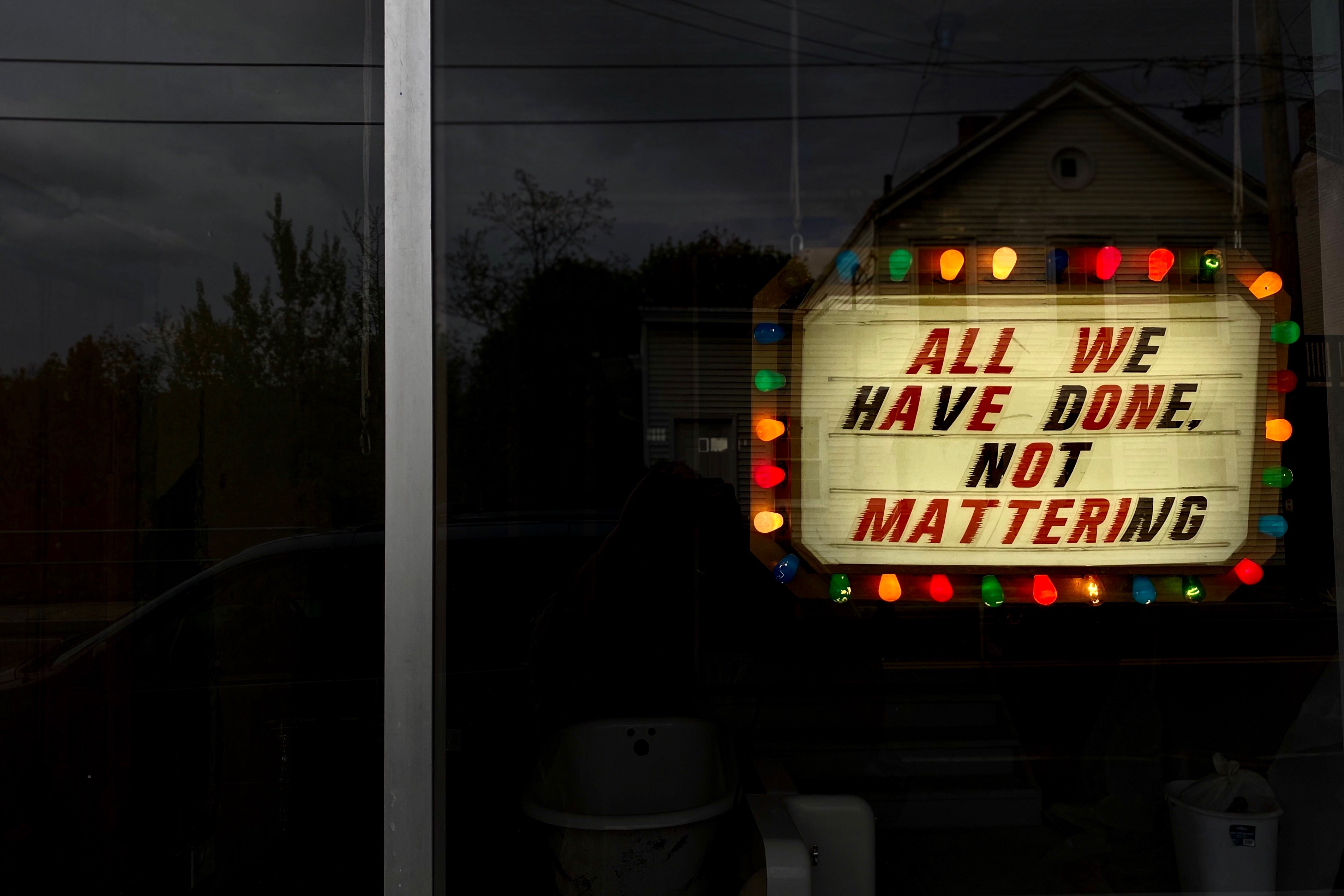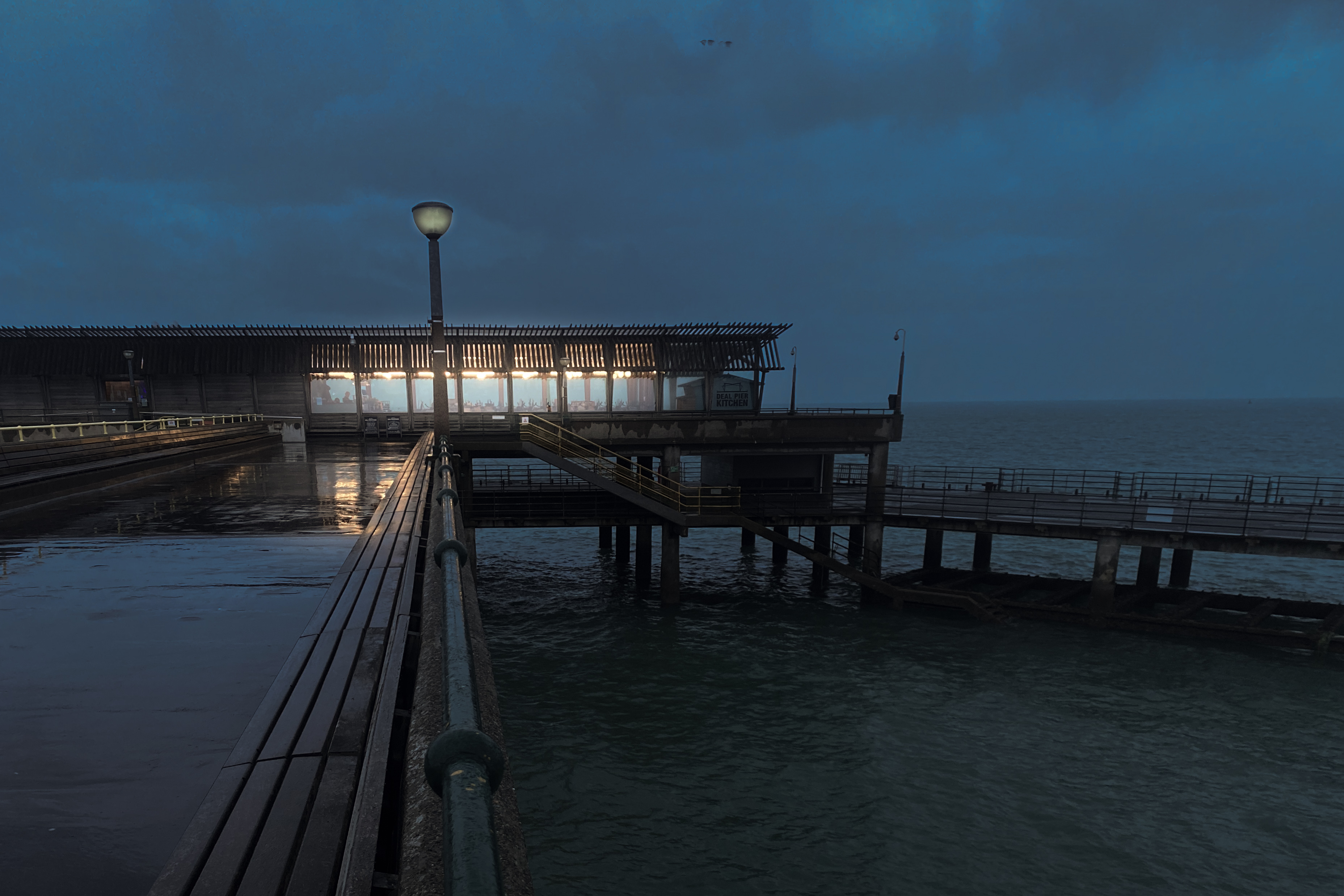I Married Her Because She Looked Like You
After Jonathan left, Steve and Jess took the bedroom. He painted the place white, tore up the linoleum in the kitchen, threw drop cloths over the chairs, pared it down to nothing. Like he’d left, but was still there. At night he’d roll the futon out in the living room, pass out drunk to Mazzy Star, the Sundays and the soaring filigree of Bernstein’s Adonai Ro’i. Over and over, the fragility of that treble voice, like a reed, forever at the point of breaking. And the plaintive black key apogee, yearning towards the note it might have been, never getting there. Finish, rewind, repeat, just for that one note, furred into ecstasy by the booze. He had no idea what he was listening to. He knew it was Hebrew, because he’d sung it at school and been told. But nobody bothered with the words.
Adonai ro’i, lo eḥsar.
Bin’ot deshe yarbitseini,
Al mei m’nuḥot y’nahaleini,
Naf’shi y’shovev …
Gobbledygook. Only a couple of decades later did somebody tell him it was the Twenty-third Psalm. Adonai ro’i. The Lord is my shepherd, I shall not want. Huh. Forlorn, unloved and misbegotten, splayed nightly across his futon on the fag-end, flyblown carpet at Blythe Road, turns out he was holding hands with an angel who wanted nothing more than to let him know, again and again, that he was going to be okay. ‘For Thou art with me,’ piped the cherubim, ‘Thy rod and Thy staff, they comfort me.’
Hope was so pretty he didn’t know what to do. He’d look away, then quickly look back like he was trying to catch her not being pretty. No good. Still pretty. But it was Harriet’s words that shuddered between his shoulder blades like an arrow.
‘The finest hour I’ve ever known was finding a pound on the Underground’.
Broke and nicking food, it was like some Manchester faun singing inside his head, a smudged angel by the packet soups in Sainsbury’s. Good times for a change. The whole fucking world was a lyric casserole. When one thing’s over but the other’s not begun. It’s always the bedrooms that tell the story. For I can’t help falling in love with you. And every little thing an epiphany: a pint down the pub: a glimpse of Caroline unobserved in Leicester Square: always a song. And oh, the knife that love was like.

Turned out Harriet wasn’t from Manchester, but Henley-on-Thames, and her dad was an architect. Finding a pound on the Underground my arse. Should have known, with a name like Harriet. The Blythe Road flat felt purged but broken, a child of divorce, its new surgical interior less emblematic of fresh fields than pride vanquished. Jonathan was gone, as was the yellow Cortina, the Bladerunner cityscape of stolen electronics, the featureless evenings strewn across the living room like corpses, watching snooker. The law of sibling fealty was broken. Without Jona’s touchstone presence – beakers of bucket Muscadet, Benson & Hedges pea-souper – his only recourse was to haul himself up by the withers and retool as a bespectacled bachelor lothario. But realistically, what self-respecting post-punk pixie was going to succumb to the ministrations of a man who slept on a mattress in his own living room with a UB40 under his pillow? He sighed, shrugged, thumbed the leaves of his Filofax for enthusiastic near-misses.

Wooing Cassie meant Marks & Spencer Tikka Masala and a bottle of fitou, heavy payload for a flâneur sans emploi busily squeezing a multitude of sins out of one fishy Giro. But this wasn’t his first gymkhana, and he knew the drill. Good elevation over the early fences, plough the cross-rails, end up in the drink. And anyway, ‘Poor? What does that matter? When poverty creeps in at the door, love flies in through the window’. Weird lover Wilde was on his side.
In brewing the potion, he tranced himself back to those first days at the theatre in Battersea, when haughty indifference had borne her imperial across the foyer, a teenage Cleopatra on her barge. And later, when she let slip that first flicker of a smile at his autistic inanity and his heart vaulted from his chest, unbridled, like a centaur. And then. Then the slow march towards capitulation, a siege upon her heart and all parts south, culminating in a shoddy wooden horse teeming with the tiny termite Trojans of his love, all running rampant in the unlit basement next to Jona’s sunbed. And she was silky, scrubbed; clean as a whistle, plucky as a meerkat. And her lips were bossy when she kissed, instructional, like a governess’s sleeve-secreted hanky. No backward-toppling miasma for him, no helpless breast upon his breast nor feathered glory from her loosening thighs. Just the flock wallpaper of black mould and the forest floor strewn with Karen the Cat’s discarded fecal acorns.
And she was softer than he’d known, and smelled of berries.
Now, two years on with Tikka in hand, he saw her turning heads at High Street Kensington, and felt proud. All knowing smiles, they rode the tube once more to Baron’s Court, furred in the prickly nimbus of what was up love’s pipeline.
***

Dany was French and whipsmart. By casting her as the canny maid he affected hamster-cheeked prettiness in counterpoint to Mary’s Baroness beauty, the perfect home-made dichotomy, eyes swiveling back-and-forth between two paragons like a hungry chameleon. It was a significant part of the gig back then, finding the note of unquenchable desire on the tuning fork. If you didn’t ping it in the casting, it’d be four weeks’ rehearsals with nothing for the melody to ascend toward or swirl around. A month of lumpy, earnest porridge, and afternoons down the pub with the Tenured, all pock-marked, halitotic and beery, comparing notes about which third-year they were yearning for, which vale of honeyed skin they would never get to touch. He costumed the whole cast in men’s pyjamas, a stroke of genius really, since it nailed the budget whilst thumbing up the thermostat, and let’s face it, everything runs better hot. There are few things worthier of a fever than oversized sleepwear, the mysteries between buttons, slim wrists into rolled-up sleeves, the mysterious crevices where the draw-cord dangles. And that singular epiphany; the first fat button at the sternum, a portal to darkly imagined topographies, softly rolling glens pocketed with vegetarian elves, pointy-eared and chirruping amongst themselves, stirring cauldrons of ambrosia in the sultry air.
She came down, hung around for a bit when he was in Hammersmith, kind of nested, despite the hairballs of bachelordom and the irksome gig with the futon. He’d shuffle off each morning to do his chores, leaving her knees-up in an armchair, in underwear and one of his t-shirts, cradling a bowl of chamomile tea. Very french, he thought, a bit grumpily. Sort of tousled and smiling, bed-hair snagged with a crucifix of ball-point pens. When he came home she’d have puttered about setting things in order, nothing too Anglo–Saxon, no ranks of mugs like Grenadiers, just Dany style, sous-vide maybe, or en papillote. He figured she’d grown up steeped in the kind of narrative he’d only seen in meandering, plotless films with subtitles. The ones set in seaside towns in which nothing happened other than knee-touching and bike-riding with wicker baskets full of baguettes and yearning. The way she sashayed through space, like the furniture knew she was coming and eased aside in kindly symbiosis. And that omnipresent bowl of tea between écureil paws.
In bed, when he circled her with his arms there was nothing there. The sharp cornice of a rib-cage, but nothing below. A profound absence, the taut inward curve of a socket; a cave in which nothing lived. And below, coathanger crags of hip bones flanking the raised cobble of her pubis. After that, everything they assumed would happen didn’t. They didn’t kiss. They didn’t even talk. They just went to sleep.
In the morning she told him she was anorexic. Since puberty, she said, existential recoil at some protracted nightmare of domestic trauma. Apparently not everything about the bourgeois French family is cool. She talked it through slowly, realising he was a neophyte. Yes, it was a condition associated with silliness, a disease of the ingenue who harbors a teenage urge to be skinny like a model, magazines, the male gaze, the palsy of the callow. Which compounded her disaster, since the wellspring of the impulse to starve herself was not vanity. But speaking about it meant being tarred with vanity’s brush. “You seem so clever, so self-aware,” people told her. He told her. So she stayed silent, more aware than anybody that she did not need to be skinnier, that it was devouring her from the inside, rotting her teeth, and would likely kill her in the end. The endless chamomile tea and squeezed lemons? Her entire diet, or at least everything she wouldn’t throw up later.
***

When Clare moved down to London he did the friend thing so long it became habit. Except on the nights he stayed over at the Peckham flat, slept on the floor by her bed, shallow breathing in effigy, the electricity of possibility peeling the air like a three bar fire. In retrospect it would have been so easy; a couple of clumsy motions, lifting up the envelope (“brrr, bit chilly”) and she’d nustle backwards into him, twin trilobites pocketed in the cutlery drawer of quenched yearning. The innocent ascent from carpet to mattress. But never underestimate the tenacity of spasticity. Might as well have been Kilimanjaro. She got hit by a car on the Queens Road, flew through the air and was out like a light. They put her in King’s Hospital Camberwell, an antique Victorian, one of twenty on a ward with infrequent curtains for privacy. In a coma for two weeks. We’d take the number twelve from the West End and just sit there, a wake of buzzards in dead men’s overcoats, popping out every half hour for a fag and some soup from the vending machine, past every damage that can be enacted upon the human form. And milk bottles of weak, propitiatory flowers.
A decade earlier, when they had all played the swapping clothes game in the late-night West Yorkshire cottage, he had ached to be matched with her, even once, beseeched the cards to do their dark magic. And the radioactive crackle of her quietness said she hoped for the same. To slip away into the innocent shadows of the game, some bathroom or closet, see this Donatello David fleetingly, furtively naked, would be worth a thousand miles of silent sea and the bloody sun at noon. It didn’t happen. And Piaf lied. Because anything is one thing, but what about something? The shards of the blameless glass unbroken? Life’s searing joys are often barely glimpsed, and what we gaze at full frame is mostly meat and two veg. Forgive us this day our daily bread. But deliver us our trespasses.
•••



